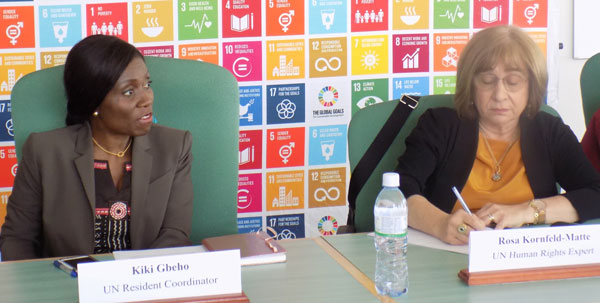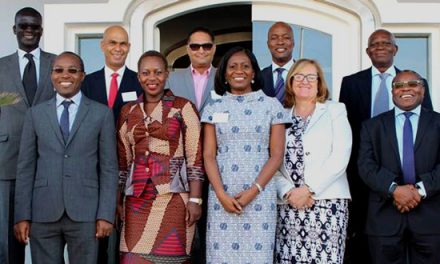
More can and needs to be done to fight old age poverty – UN expert

The United Nations Independent Expert on the enjoyment of all human rights by older persons, Rosa Kornfeld-Matte, this week commended the Namibian Government for “its political determination and vision on how to improve the lives of all Namibians by 2030 and to protect their human rights”, and “urged the Government to deliver on its promises.”
“I call on the Government to deploy every effort possible to finalise and put into motion the comprehensive national policy on the rights, care and protection of older people. A dedicated policy on older persons is key to ensuring improved protection of their rights,” she said.
At a press conference she emphasised that “any policy on older persons has to adopt a human rights-based approach,” and added that “the United Nations principles on older persons alongside the core human rights instruments should guide the Government’s efforts in this regard.”
“Ageing in Namibia is just beginning to take shape,” the UN Expert noted. While the proportion of older persons has remained somehow constant at around 7% since independence, the projected growth rate of the older population in sub-Saharan Africa is expected to be faster than that experienced by any other region since 1950.
“The challenges associated with an ageing society are not a distant phenomenon,” the UN expert said. “It will result in immense pressure on the care system as a growing number of older persons will be living with chronic diseases and disability.”
“Low population density and accelerated levels of urbanization have the potential to erode the traditional family care system. Further investment by the Government in health and care infrastructure is required to provide alternatives to the older persons in rural areas,” she added.
According to her, care can no longer be considered simply a family matter and she called on the Government to step up its effort to revise the Aged Persons Act in order to fully provide for the rights, protection, care and welfare of older people.
“Namibia has come a long way since it gained independence only 27 years ago. It has since enjoyed political stability and steady economic growth and is ranked as an upper middle-income country,” the Independent Expert said. “We owe recognition to these Namibian achievements,” she outlined.
Despite all the efforts, Namibia continues to be among the most unequal countries in the world. “While I acknowledge that poverty levels have been brought down significantly since independence, they remain high for certain parts of the population and certain regions of the country,” she said.
Furthermore, she noted that there are serious concerns about violence against, abuse and maltreatment of older persons and in particular older women in Namibia and there is too little discussion about it
“The government has an obligation to tackle this as a matter of priority,” she added.
Meanwhile, she assured the nation that their call for technical cooperation and capacity building was heard and the international community has indeed an important role to play in complementing and supporting their efforts to address the challenges of an ageing society and in particular in the fight of old age poverty.
“I will do my utmost to encourage the international community to continue its cooperation with Namibia, including through financial and specific technical support,” she added.
During her ten-day visit, Ms. Kornfeld-Matte visited Windhoek, Katutura, Okahandja, as well as Rundu, Silikunga, Zone and Mpungu in the Kavango Regions and met with various Government authorities, non-governmental organizations, the academia and others working on the rights of older persons, as well as older persons themselves and their representative organizations.











































